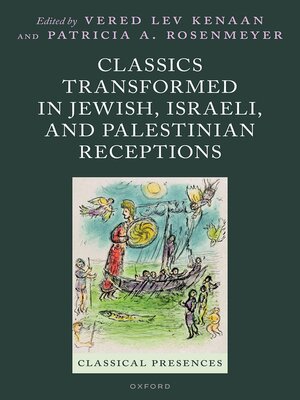Classics Transformed in Jewish, Israeli, and Palestinian Receptions
ebook ∣ Classical Presences
By Vered Lev Kenaan

Sign up to save your library
With an OverDrive account, you can save your favorite libraries for at-a-glance information about availability. Find out more about OverDrive accounts.
Find this title in Libby, the library reading app by OverDrive.



Search for a digital library with this title
Title found at these libraries:
| Library Name | Distance |
|---|---|
| Loading... |
Classics Transformed in Jewish, Israeli, and Palestinian Receptions invites the reader to view classical antiquity through the writings of poets, translators, and scholars emerging from modern Jewish diasporas, Mandatory Palestine, and the State of Israel who engaged with Greek and Roman literary precedents. Whereas these voices have up to now been mostly studied independently of one another as separate fields of research, this volume brings some of these distinct voices, who nevertheless share a connection to Greco-Roman antiquity, into conversation with one another. Taking its cue from the crisis of humanism following the Holocaust, the chapters take as their themes the destruction of home, displacement, and different forms of wandering and homecomings, drawing connections to acts of translation and transmission of the classics to form a picture of cultural and textual states of alterity. The volume shows that Jewish, Israeli, and Palestinian responses to the classics are entangled and even complementary despite their different trajectories. The chapters included here focus particularly on critical moments in Jewish and Palestinian existence when the reception of classical humanism is closely linked to issues of survival. On offer here is a historically grounded investigation into the ways Jews, Israelis, and Palestinians have used classical antiquity and classical philology to validate their identity in a rapidly changing society.







